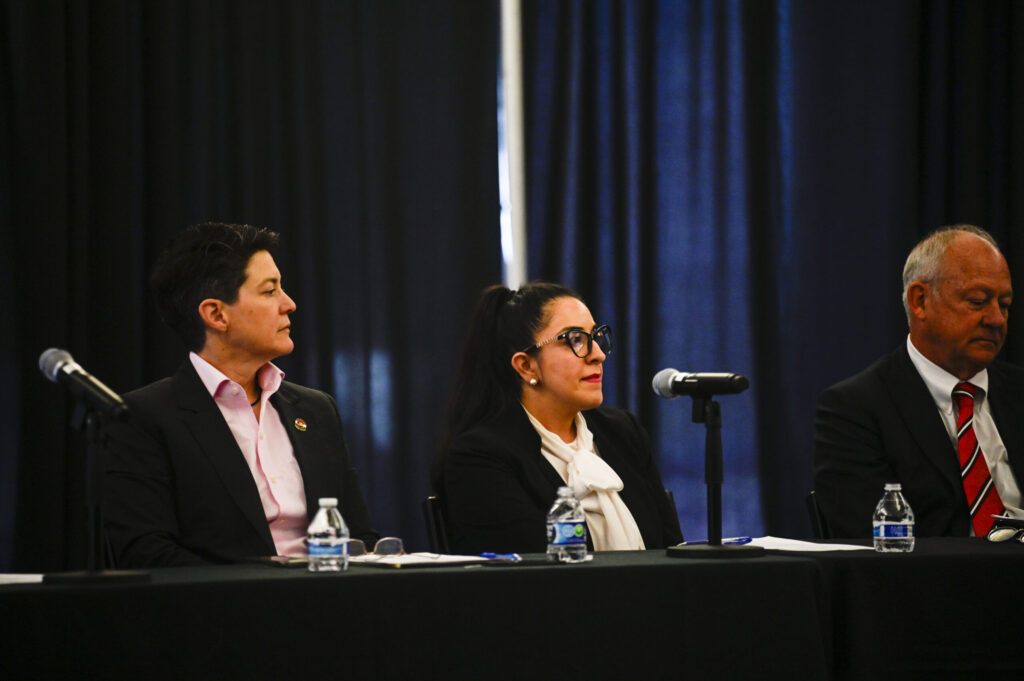Federal judge green-lights trial against Denver Health, staff for death of elderly jail detainee
Five Denver Health employees and the organization itself will stand trial on claims that they provided a constitutionally deficient level of medical care to an elderly jail detainee who died from severe health problems, a federal judge ruled on Wednesday.
The defendants maintained 71-year-old Leroy “Nicky” Taylor received consistent medical care during his incarceration and that staff never detected an emergency. Consequently, the lawsuit over his death was really a medical negligence case and did not amount to a constitutional violation.
Taylor’s son, who filed suit on behalf of Taylor’s estate, countered that his father’s dire condition was so obvious in the days leading up to his death that multiple sheriff’s employees and detainees were concerned for him. Moreover, Denver Health failed to adequately train its staff about when to escalate patient care and how to treat someone who, like Taylor, has blue hands or feet.
In a July 16 order, U.S. District Court Judge Charlotte N. Sweeney agreed a jury could find the defendants knew of a substantial risk of harm to Taylor, yet disregarded it. She added that jurors would also consider whether Denver Health’s own practices and training were behind the alleged violation of Taylor’s rights.
“And although there is some guidance,” she wrote, “for patients’ access to care, Plaintiff has created a triable issue of material fact as to whether this document and the guidance it provides to medical staff amounts to adequate specific training regarding staff’s escalation of emergency medical situations and specifically to whom they should be escalated.”
Taylor entered the jail on Nov. 7, 2021. More than two months into his sentence, he contracted COVID-19 and began receiving medicine and follow-up care. On Feb. 2, 2022, Taylor’s condition worsened and he began seeing another round of Denver Health providers who engaged in treatment. A doctor cleared Taylor to return to the general population on Feb. 8. The next day, Taylor became unresponsive in his bunk. The medical examiner determined his death was “natural.”
Taylor’s son alleged medical staff exhibited deliberate indifference to Taylor’s significant health needs, in violation of the constitutional prohibition on cruel and unusual punishment. The defendants sought to end the case without a trial, arguing Taylor received extensive treatment over his relatively brief jail stay.
“Simply, Mr. Taylor was not exhibiting emergent or serious symptoms nor expressing them to multiple staff members of Denver Health,” wrote attorneys for the hospital. “While there may be a difference of opinion as to what the best course of care would have been, Plaintiff’s claims amount to negligence not deliberate indifference.”
However, some evidence suggested otherwise.
A Denver police officer who responded to the jail wrote that he had spoken with a detainee who “basically echoed the sentiments of the other inmates that Taylor had been very sick and nothing had been done medically to help him.” A sheriff’s sergeant also shared her view that medical staff “had done very little to assist him.”
A preliminary investigation report, which concluded no crime had occurred, further noted detainees “kept asking for help for Mr. Taylor.” Before his death, Taylor’s “hands and feet were blue” and a sheriff’s deputy who sought a nurse’s intervention was told there was “nothing that she could do.”
In her order, Sweeney concluded jurors would ultimately have to decide whether to hold five medical personnel liable: Peter Crum, Melissa Brokaw, Bernice Chavarria Torres, Isaac Karugu and Alice Mukamugemanyi. The evidence, she wrote, could support a finding that each defendant either failed to properly treat Taylor or did not appropriately escalate his care, given what they knew.
As for Denver Health itself, Sweeney believed a jury should address the theory that the hospital “customarily allows medical staff to point the finger at other staff to avoid liability.” She noted Crum, the doctor who returned Taylor to the general population without examining him, had stated Taylor was “not my patient,” and that responsibility for Taylor depended upon “what day it was.”
Also, Sweeney agreed Denver Health could be held liable based on alleged training deficiencies.
“Nurse Brokaw testified that there is no protocol on patients who ‘present with blue hands and feet’,” she wrote, which a jury could find to be “‘closely related’ to Mr. Taylor’s death.”
Finally, because Sweeney believed jurors could find the staff defendants violated Taylor’s rights by failing to escalate his care, she concluded Denver Health itself could be found liable for not appropriately training employees on how to do so.
A trial date has not been set.
The case is Estate of Taylor et al. v. Denver Health and Hospital Authority et al.
Colorado Politics Must-Reads:













